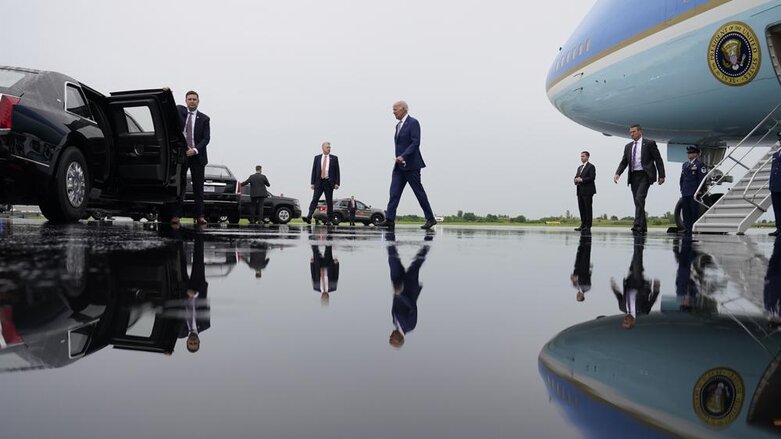Biden to meet Iraqi leadership on Middle East trip
Biden has a long involvement with Iraq, including with the Kurdish leadership, going back to when he served on the Senate Foreign Relations Committee.

WASHINGTON DC (Kurdistan 24) – The White House announced Tuesday that President Joe Biden will visit Saudi Arabia and Israel next month.
Biden will go first to Israel and the West Bank, then travel to the western Saudi city of Jeddah, where he will meet with a number of Arab leaders, including Iraqi Prime Minister Mustafa Al-Kadhimi.
Although nothing has been said about Kurdish representation in that meeting, it has been common for senior officials from the Kurdistan Regional Government (KRG) to be included in Iraq’s delegation in such meetings—whether they are bilateral meetings between US and Iraqi officials, or multilateral meetings involving many countries, such as those of the Defeat-ISIS Coalition.
Biden has a long involvement with Iraq, including with the Kurdish leadership, going back to when he served on the Senate Foreign Relations Committee.
Indeed, in late 2017, Biden, then a private citizen, told this reporter that Masoud Barzani “is a good friend of mine,” and he wished that the Obama administration, in which he was Vice-President, had done more for the Kurds.
Read More: Joe Biden—‘Good Friend’ of Masoud Barzani—becomes America’s 46th President
Updating an Outdated Policy
In many respects, the Biden team came into office with a Middle East agenda that reflected the last time they held office—in the Obama administration.
Above all, they seemed bent on not being Donald Trump and, in particular, reviving the 2015 Iranian nuclear deal that Trump left in 2018.
But the outreach to Iran did not work. The Iranians were not prepared to conclude the necessary understandings while their regional aggression continued unabated. America’s traditional allies, like Israel and the Gulf states, were alienated.
Moreover, Russia’s invasion of Ukraine represents a global earthquake. As Biden stated last week, “Nothing like this has happened since World War II”—some 80 years ago! And no one knows how long the current crisis will last or how it will play out.
Yet one immediate consequence has been big price hikes—a rate of inflation not seen in the US in 40 years. The inflation has several causes, including the Biden administration’s high level of spending in response to COVID.
Biden’s economic advisers said that any inflation would be temporary, but they scarcely could have been more wrong!
For US voters, the economy is the most important issue, and the high inflation rate will likely last through the mid-term elections in November. It may well cost Democrats the control they now enjoy over both houses of Congress, and it may even cost them the presidency in 2024.
Thus, America’s high inflation rate is a serious matter—and high fuel prices, coming from Russia’s invasion of Ukraine, have contributed significantly to it because of the sanctions that the US and Europe have imposed on Russian energy exports.
So, Biden wants to repair relations with Saudi Arabia, the world’s largest oil producer, which he earlier denounced as a pariah state for, among other things, the murder of journalist Jamal Khashoggi.
Biden’s Itinerary
Biden will visit the Middle East between July 13 and 16.
In addition to addressing issues between Israel and the Palestinians, Biden’s visit “will also focus on Israel’s increasing integration into the region,” a senior administration official told journalists, “both through the Abraham Accords with [the United Arab Emirates], Morocco, and Bahrain,” as well as “deepening ties between Israel, Jordan and Egypt,” and “an entirely new” group that includes Israel, India, the UAE, and the US—“what we call I2U2.”
Biden will fly directly from Israel to Jeddah, a point the official stressed in his briefing. In Saudi Arabia, Biden will meet with the Saudi leadership and that of the other Gulf Cooperation Council (GCC) states, Bahrain, Kuwait, Oman, Qatar, and the UAE, along with the leaders of Egypt, Iraq, and Jordan—what the senior official called the GCC + 3.
Virtually all the GCC countries are oil exporters, and together, they produce over 20% of the world’s oil.
Biden will discuss a range of issues in Jeddah, the senior administration official said, Including “deterring threats from Iran, advancing human rights, and ensuring global energy and food security.”